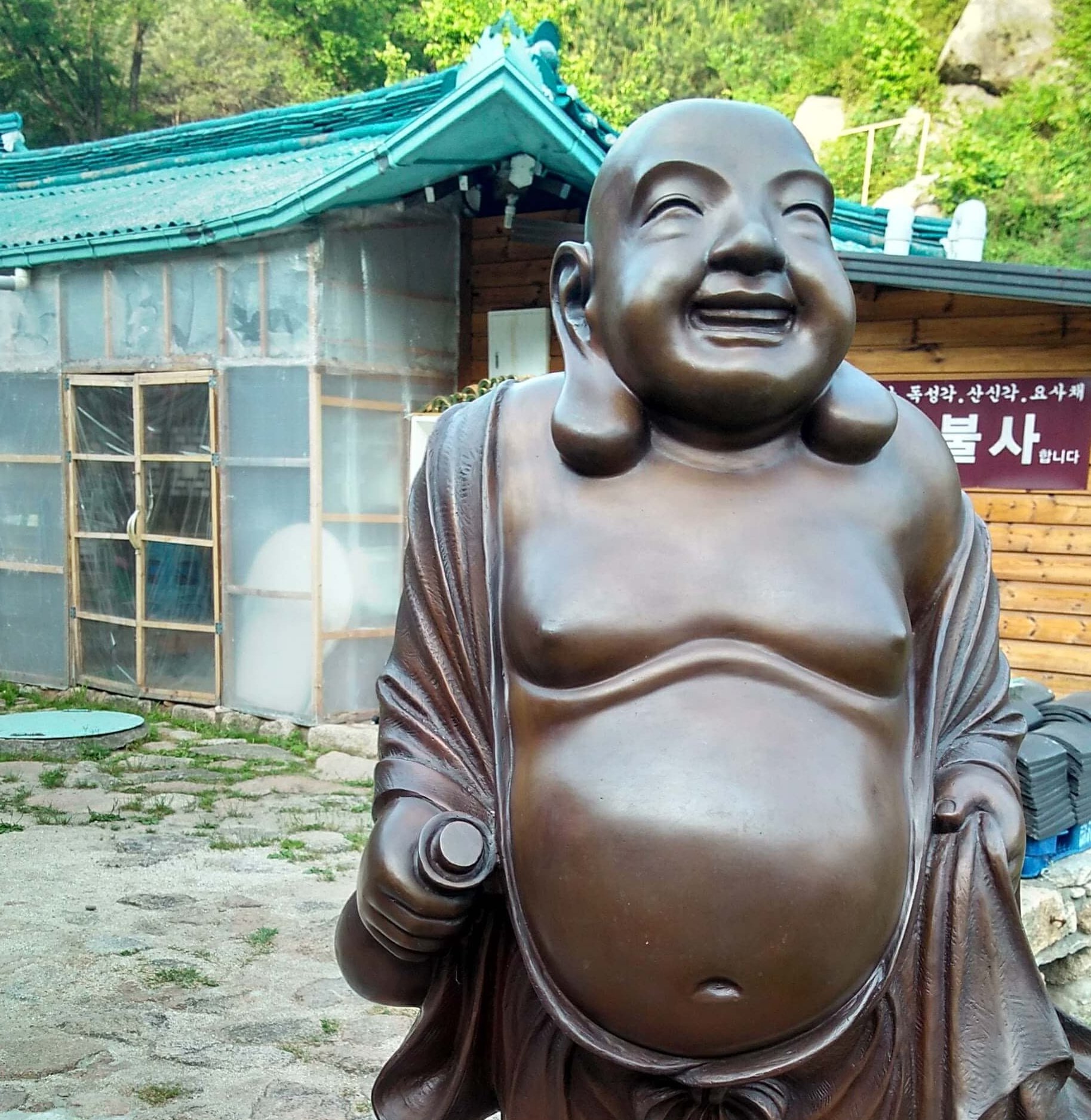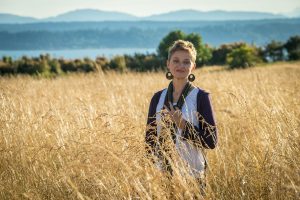
My spiritual journey has been the most practical time of my life. And by practical, I mean that practically speaking this path of connecting to Spirit has made countless changes in my everyday life and the way I relate to myself, my friends, students, fellow teachers, and to my family. These days I’ll begrudgingly admit that the last one is the hardest. Even with my progressive, quinoa and kale-eating, pilates-teaching, past-life talking family, it’s still hard.
In 2016, for the first time in my life, I’m wholeheartedly excited to be living in my hometown, seeing my family weekly and building community in the Northwest.
I began “growing apart” from my family in 2005 when I moved to Boston from my home of Seattle. I just needed something different, something to get me out of the rut of life I found myself in two years after graduating college.
That year, I dove into Yoga with reckless abandon and it began making some huge changes internally and externally. My favorite three studios were a Bikram hot yoga studio, a Baptiste power flow studio, and a great little place that held weekly restorative yoga. A bartender friend and I started attending Sunday morning restorative classes which gave us some space from the fast-paced life of Boston restaurants to feel our bodies and just shut the hell up for an hour and a half.
One Sunday morning, sun streaming in through the front windows amidst a particularly excruciating hip opener, the instructor offered the famous quote, “If you think you’re enlightened, go home.” I laughed along with everyone else and thought it was cute and witty. I didn’t have any idea how much this statement would affect me over the next 10 years.
Back then when I returned home to visit family and friends in Seattle, it was full of reunion, doing our favorite things, catching up and relating on mutually agreeable terms. My college friends were moving in some different directions, but we still had similar struggles in how to find our places in the world with idealism, creativity and some reality checks about paying rent and car insurance.
At the end of my year in Boston, I moved to Kripalu, a Yoga retreat center in western Massachusetts, and had two intense months of practice, introspection and growth. When I returned to Seattle in November 2006, it was the first time I felt…well, different. Like maybe my family didn’t understand me quite as well as they had before. Like maybe my priorities had really changed from those around me. And what do you know…judgment! So. Much. Judgment.
I had these recurring thoughts that my family wasn’t good enough, that their ways were so mundane, that they should (ugh!) be doing what I was doing. I judged their jobs, their habits, their food choices and mostly that they choose to live a life that was based in routine and patterns.
Here’s the first rub from the aforementioned enlightenment statement about going home: my family triggered a lot of the things I realized I didn’t want to be anymore. When I get triggered, one of two things happen. Either I freeze and just want to crawl into a hole and hide, or I get upset and reactive and want to yell and scream at whoever offended me. When this happens, there’s not much chance of me responding with compassion, kindness and patience and things tend to turn into a conflict or an argument and elevate more.
I didn’t know before I had left for those first few years away that my family that everyone had unspoken agreements about how I was supposed to act within the family dynamic – as a sister, daughter, aunt, cousin, niece, granddaughter. They assumed I was the same as the last time we saw each other. As did my fiancé who was living in Seattle. And his family. And my college friends and high school friends.
During those beginning years on my spiritual journey, I started resenting my family for simply being who they were and who they had always been. And, man, that’s not fair to them.
I was frustrated by the things I was and was not supposed to talk about and ask questions about, like why we did the things we did and what was the motivation behind my family’s lifestyle, something maybe they didn’t think too much about. I wanted to have all those deep, mysterious conversations about authenticity, spiritual practice, ways to transform my inner and outer landscape and the like.
I made the mistake that nearly everyone makes when “coming back” – a term I grew to resent more and more over the years of coming and going – believing that what I was talking about was more important than what my family was talking about. That how they lived their lives wasn’t good enough. I will admit I said some very hurtful things. And I hated being in my hometown.
I especially hated being in the suburbs. A lot. I had grown to love city life and country life, but the suburbs are a confusing jungle somewhere in the middle, in my very humble opinion, and I get lost with the miles of strip malls, unpredictable traffic, airplane noise, and very sad expressions on people’s faces. Suburbs drained me. And my family’s routines drained me, too.
Early in 2007 I took my first adult trip into the wider world: 3 months of WWOOFing (Willing Workers on Organic Farms) in New Zealand. I was joined by a friend from Kripalu, someone who was in a similar place of shedding the old and attempting to live a conscious life. It’s great to have compatriots and commiserators on the path. We spent a lot of time unpacking our emotions, recognizing our patterns and saying how we wanted to be free of all of that. And we were living it thousands of miles from America, from our families, the places we get stuck, and in the midst of living with Kiwis – the most grounded, connected and open people I had met as a whole.
And then I came back to Seattle again in 2007 – to my awaiting fiancé and family, which was really hard. So hard, in fact, that the relationship with my fiancé ended abruptly and I spiraled into my quarter life crisis and picking myself apart for not being on more solid ground by the time I was 27.
After the very challenging breakup, I grew to resent being in Seattle even more. The worst part for me was that I was living in the suburbs on the eastside of Seattle. It was actually a very sweet location, just above the Redmond farmlands and Woodinville wineries, but it was at least an hour from my family, 30-90 minutes commute to my music teaching jobs, and the other random work I took that year to cover the rent, like bartending at a golf course.
I wanted to leave again so badly that I was taking it out on everyone. I was even more bitter towards my very, very patient family. And then finally my mom gave me an out. Out of the blue one day she sent me a job ad for teaching English in Korea, which led very quickly to my first overseas teaching gig.
So did I get all that resentment and frustration out of my system? Alas, no. Which brings up my first lesson about digging up things with your family.
Lesson 1: Go wherever you want for as long as you want. Your lessons will be waiting for you when you get back.
The universe is patient. Very patient. Your karma is there to work out with your family whether you like it or not. And if you’re like me, you probably don’t. I ran away from my lessons again and again, but they were always waiting like an eager puppy ready to pounce and lick my face when I came home.
After three joyful, independent and sometimes lonely years among expats, travelers and Yogis, I once again came back home. My return to the Seattle suburbs in 2011 began with some peace and settling in, as I lived at my mom’s house on a lake, had long morning practices and spent regular time with my niece and new nephew. I was happy to be home and inspired to become a full-time yoga and music teacher, hoping it would all come pretty easily.
And it did. Until it didn’t.
I craved the company of people who inspired me like my expat friends had, to be around people who threw caution to the wind and jumped on a plane to the Philippines at a moment’s notice.
You can grow and change as much as you want while you’re away. When you come back, most likely your family will be pretty much the same as you left. They’ll be enjoying similar routines and patterns while you might be a completely different person with different preferences and habits.
Whatever is waiting in the shadows will come up at some point when you go back home. For me, it’s the way my family talks to me and pretends like we haven’t hurt each other over the years. We like to live in the realm of “everything’s okay.” That feels to me like being in denial about our years of stuff that we could be working out and forgiving each other for. We could be developing new patterns around our triggers – pretending they’re not there does not make them go away. If that were the case, we would be the perfect family model.
This continues to be a struggle today. Last week, my mom said to me, “Aren’t you over that yet?” about some childhood pain. Sure, it was 20 years ago but no, I’m not over it yet. So as I work on forgiving myself and my family, I invite them into the work, too. I can choose to say things to my mom like, “Actually, I still have some hurt feelings around that. And I don’t blame you. I’d really appreciate it if we could talk about that.” Another example is a conversation my sister and I had recently about our co-dependent relationship patterns. I find that by acknowledging our familial patterns with acceptance instead of denying them and playing the victim/martyr empowers me to make better choices in the present. And I can see how it helps my sister also uncover some hidden motivations and maybe feel free to make new choices, too.
I’m not sure that everyone feels that way, yet. We’re still learning, I guess.
Lesson 2: You’ll probably need to relearn how to communicate with family.
If you need something different, you have to ask! This is very, very hard for most of us. And even if you do develop the language to ask, your family members may not be able to give you what you need. Or they may have some resentment that you’re not appreciating them the way they are.
Let’s face it: most of us haven’t spent a lot of time negotiating and communicating about how we talk to each other. Maybe you’ve gotten good at that with your chosen family or close friends, but there is a lot more freedom to do that with people you don’t have 20+ years of history with. And a childhood. And guilt, shame and all the other things we build up conditioning around. Not to mention that our parents are doing the best with what they were given. Do you think they have any more tools of healthy communication than you do? Not likely, unless your dad happens to be Rodney Yee or Jack Kornfield.
Most of us live in our family patterns our entire lives without changing them. We hold the same grudges, speak to each other with the same tone of voice – like passive-aggressive, martyr, straight aggressive, even abusive and toxic patterns, etc. It takes a tremendous amount of courage to change these patterns and ask for something different. But someone needs to. None of us were born with perfect families. We all have karma and stuff to sort out in this lifetime – with our family members. That doesn’t mean we have to come back to abusive situations or make amends with everyone. Maybe our lesson is to make an empowered choice for ourselves not to associate with certain people. Maybe it’s to develop more compassion. Maybe it’s to forgive. Even Ramakrishna, the 19th century enlightened master, was said to scream at his family for their material ways and lower vibrations. I don’t know about you, but that makes me feel better about my family dynamic.
I recently had a talk with my mom about when I was going through PTSD a few years ago and how challenging that was for my family. I took all of my frustration and irritation out on my family and reacted to literally everything they said and did. Nothing was good enough or accepting enough. My mom and I had a great conversation about how I could have asked for help and that they really just wanted the best for me. That gives me a lot of courage to ask for help next time and to let them support me, no matter how messy or uncomfortable it is.
Saying to your parents, “Don’t talk to me like a child,” isn’t going to create new habits. It will probably make your parents feel hurt and get defensive. And please don’t make the mistake of trying to create new patterns while you are feeling triggered or reactive. That will only make things worse. Make some intentional time to talk to each other when everyone has ample time and has eaten (hanger will ruin any good conversation). Bring up a particular pattern, like how they are critical of your job or your partner or some way you feel pressured. Or maybe it’s asking them to express their love or respect.
The same strategies can work for developing communication with your kids! Set up a situation where everyone is comfortable and relaxed, start with some positive conversation or appreciation, then express something that you’d like to change or bring to everyone’s attention. Maybe you’d like to spend more time together, for them to stop asking for money, or to hear that they appreciate you. Ask them for exactly what you’d like and express that you’re doing the best you know how and are willing to make changes that will help them, too.
When we get into these conversations in my family, there are a lot of “Huh! I didn’t realize that hurt you,” or “Well, I’ve never thought about that before.” Give them the benefit of the doubt that if they knew they were hurting you, they’d change. And if you want things to change, take up the difficult responsibility to compassionately and empathetically ask for those changes.
Lesson 3: It takes a lot to accept your family just the way they are.
My students are often asking me about “outgrowing” their friends or finding new community that they can better relate with at this stage of their spiritual growth. If you look back over the last 10, 20, 30 years, you’ll probably notice that your closest friends have shifted more than once. They revolved around your job, your hobbies, where you were living, your spiritual choices, etc.
We get to choose our friends and also choose new friends or allow new community to come into our lives as we change. I find that the people I choose to spend time with these days are people who are on a very similar trajectory as me. That has changed a lot in the past 10 years. I still stay connected with a lot of my communities from the past, but I don’t feel I need to cling to friends I had during other versions of me as we’re growing apart.
That is not the same for your family. We only get one birth/childhood family, plus the new members that are picked up along the way like brother-in-laws and stepmoms. We only get what we’re dealt. So as we change and grow into new versions of ourselves, recognize that they might feel left out. They spent your lifetime loving you the way you were…and now you’re different! In 2000, my mom and brother moved to Australia for a year. When they returned, they were both remarkably different. They had spent the year shedding their skin, taking new adventures and living outside their comfort zone. It was a process of re-balancing for everyone when they returned.
Part of why I love traveling is going to places where no one knows a thing about me and I can show up fully present to what that moment needs. It’s easy to put down baggage when it’s not attached to my immediate surroundings. And part of why I love coming back is because the hugs, kisses, and chats are so deeply familiar and filled with years of collected understanding.
I can clearly see some of the lessons I need to learn from my family – notably patience, forgiveness, communication, and empathy – and why “coming back” is so necessary for me. Going away is very important too. Now I have a fresh perspective on the roles I play and the assumptions I have about where I do and don’t fit in. I’ve experienced what family looks and feels like to different cultures and can recognize that, although my family is far from perfect, they are really trying their best and are willing to support me if I just give them a little guidance and recognition.
Lesson 4: You will get triggered by your family. And you can create new patterns.
Home is where most of our programming comes from. We grew up with a whole bunch of samskaras, patterns or habits that create neural pathways and behavior patterns that we live from our whole lives…or until we learn to rewire them. We can get to the bottom of these motivating thoughts and subconscious programming with a lot of intentional work, like counseling, yoga, mindfulness, ecstatic dance, creative writing, coaching, etc. Eventually we can unravel the causes of our suffering and stop living the same patterns and triggers day after day, year after year, triggers which are often tied to the sights, smells, and memories that we grew up with.
It’s possible to be proactive about the habits that exist in your family dynamic – even if they aren’t your fault or were formed during your childhood – and intentionally create new habits that will keep you present and kind. For example, I really don’t like my sister comparing my lifestyle with hers and complaining about how I spend my time. I could retort, “Well, you’re the one who chose to have kids,” (which I totally have said in the past), or I could say, “I hear you. It’s really tough to raise three kids mindfully. How can I support you?”
Practice with people outside your family who can deal with your upsets and triggers. Role play the hard conversations with people who can give you feedback and hold you through challenging memories. Play the worst-case scenario game and play around with how you would respond to your family member getting really upset by what you are offering. Most likely what actually happens will be easier than that scenario.
Conflict is a natural part of relating. No matter what your family dynamic is, there is conflict on some level. For real. Every relationship has it. If you’re like me, you tried to live in denial of this for a long time. Maybe the conflict in your family lives at the surface and feels constantly volatile. Or maybe it’s buried deep and never mentioned. Be aware that all families have their challenges, their miscommunications, their minefields. Take the lessons you learn on your path into your family dynamic without expecting others to change. But watch out for that judgment and expectation that your siblings should be changing in the same ways you are. That will only create more stress and disappointment.
The patterns that exist in your family have taken decades to create. Even more than that, they are probably ingrained from your parents’ parents and maybe their parents, too. Kindly introduce new ways to communicate and appreciate each other, but don’t expect everyone to jump on the bandwagon. Just because it feels good to you doesn’t mean it feels good to others right away.
I’ve recently started digging up some core wounding around my parents and siblings that I’d love to share with them. I also realize that if I open that can and pour out the contents, it will surely cause some pain. So we talk about things slowly, little by little. My mom gives me time to explain the things I want her to know and I give her time to deal with it in her own way. We’re still working on it, but there feels like a lot of space to talk about things we used to keep tight under the rug. Sure it’s uncomfortable, but every time we uncover a little more it feels like years of tension being lifted.
So be kind to yourself. And be kind to your family. Set the habits that will keep you present and kind, that will keep your love tank full. Remember, you’re in for the long haul with your family. Things take a loooooooong time to change. Years. As another teacher of mine says, “slowly, slowly.”



